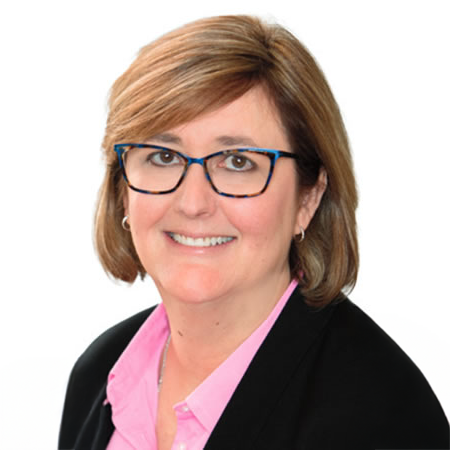Years ago, when she was doing traditional economic development work in Collier County, Tammie Nemecek took a team of county commissioners on a tour of Arthrex, an up-and-coming medical device manufacturer in North Naples.
One moment from that tour still stands out. It was during a slideshow presentation by Arthrex founder and CEO Reinhold Schmieding: “He put a picture of an island up and said, ‘This is me.’” Nemecek recalls. “He felt like he was on an island — that there wasn’t a support system around him.”
It didn’t stop Schmieding. Today, Arthrex is one of Southwest Florida’s biggest employers, and Schmieding is a billionaire many times over.
But entrepreneurial loneliness remains a challenge, and Nemecek is working with second-stage entrepreneurs across the state to try and fill the void.
Nearly 30% of entrepreneurs surveyed last year by the website Founder Reports, which focuses on startups, said they felt lonely or isolated — and while society and the media may celebrate the stereotype of the “solopreneur” chasing success by themselves in a garage, it doesn’t always feel like the hero’s journey.
Two University of Tennessee professors studying “entrepreneurial loneliness” found more than 9,000 posts on the topic in Reddit’s entrepreneurial communities. One Reddit user they quoted compared being an entrepreneur to “sailing out into a big blue sea without a compass.” Another said they thought about quitting their own business at least once a month.
In a web essay on the topic, LinkedIn co-founder Reid Hoffman describes the entrepreneur’s journey as “even lonelier” than that of a CEO. “I often say that starting a company is like throwing yourself off a cliff and assembling an airplane on the way down. That’s terrifying enough. But even more terrifying is the fact that you’ve convinced an entire community of people you care about to throw themselves off the cliff with you,” Hoffman writes.
His advice? Build a peer support network of entrepreneurial friends and build bridges with investors, board members and others who will “embark on your journey with eyes wide open, helping you watch out for obstacles, rather than fearfully closing their eyes and relying on you to keep watch alone.”
The good news in Florida is that Nemecek’s group, GrowFL, has been building bridges and networks like that for years. The organization focuses on scalable second-stage companies poised for growth, offering them an array of services that includes retreats with mentors, virtual leadership institutes and CEO roundtable discussions. GrowFL also hosts regional events where entrepreneurs can meet other local business leaders to develop a peer network, among other opportunities.
To be considered for the program, companies must have at least six employees and $750,000 in annual revenue. Each year, 50 are invited to tap into the ecosystem when they’re selected as a GrowFL “Company to Watch” and honored at an annual gala. The big benefits come “after the confetti falls to the ground,” Nemecek says. “Now they’re surrounded by all these people who want to help them.”
It’s part and parcel of an entrepreneurial-focused economic development strategy known as “economic gardening” that was pioneered in the late 1980s in Littleton, Colo. The basic tenet is that economic developers shouldn’t just be out hunting for business relocations — they should also be helping small, local, growth-oriented companies expand and create jobs.
Florida jumped on the bandwagon in 2009 when the Legislature created GrowFL as a technical assistance pilot program. It operated for several years under the auspices of the University of Central Florida before being spun off in 2021 into a stand-alone nonprofit.
In February, I got a glimpse of GrowFL’s economic gardening efforts at the organization’s “Company to Watch” event, which was sponsored by more than a dozen Florida companies, including FLORIDA TREND. The energy in the room was palpable and I was pleased to see several businesses I’ve already come to know such as Haddy, a St. Petersburg company that’s using large-scale 3D printing and AI to produce furniture. “We like to think of ourselves as the Invisalign of furniture,” says founder Jay Rogers.
There were dozens of other companies I hadn’t heard of but look forward to learning more about. They include FNN, a five-year-old Gainesville company that uses AI to detect lightning strikes likely to start wildfires, and Blue Frontier, a Boca Raton company that’s developed an air conditioning system that controls humidity and temperature independently of one another, making it much more efficient than traditional AC units.
Nemecek says GrowFL will be there to help Haddy, FNN, Blue Frontier and the other 47 companies it recognized figure out their growth strategies — and to make sure they don’t feel so alone. Reinhold Schmieding’s island slide is never far from her thoughts.
“If you don’t take time when they’re smaller to recognize and appreciate them, they will leave, they will go to other locations,” says Nemecek. “That’s what we’re trying to do — to bring a sense of community around these CEOs, so that it keeps them here in Florida.”
— Amy Keller, Executive Editor
akeller@floridatrend.com
Amy Keller
Amy Keller is executive editor of Florida Trend and oversees the magazine’s editorial department. Keller’s writings have also appeared in Salon, The New Republic, Broadcasting & Cable magazine, REALTOR Magazine, the Atlanta Jewish Times, the Detroit Jewish News and other publications. Keller graduated from The Ohio State University with a degree in journalism.













